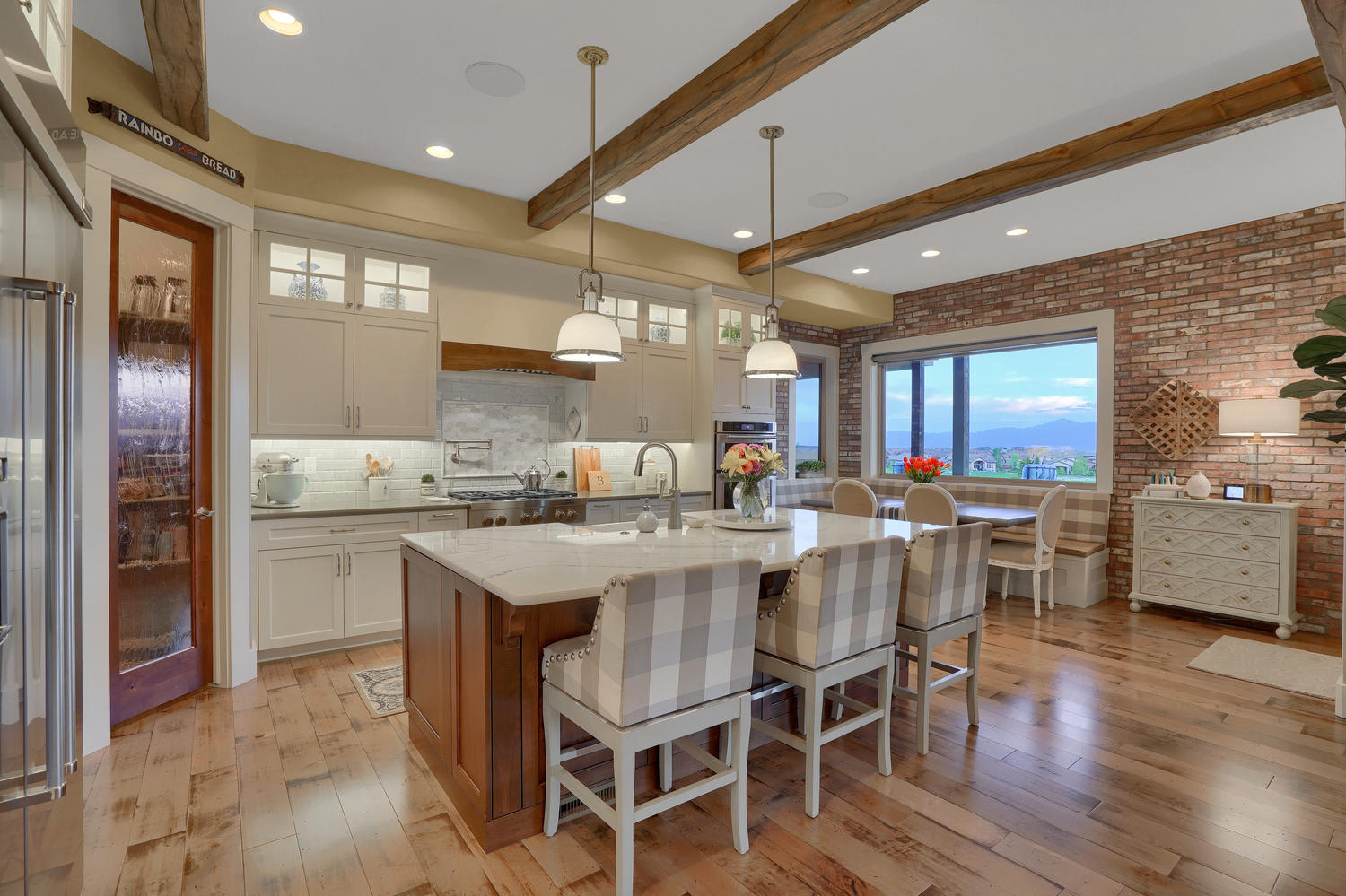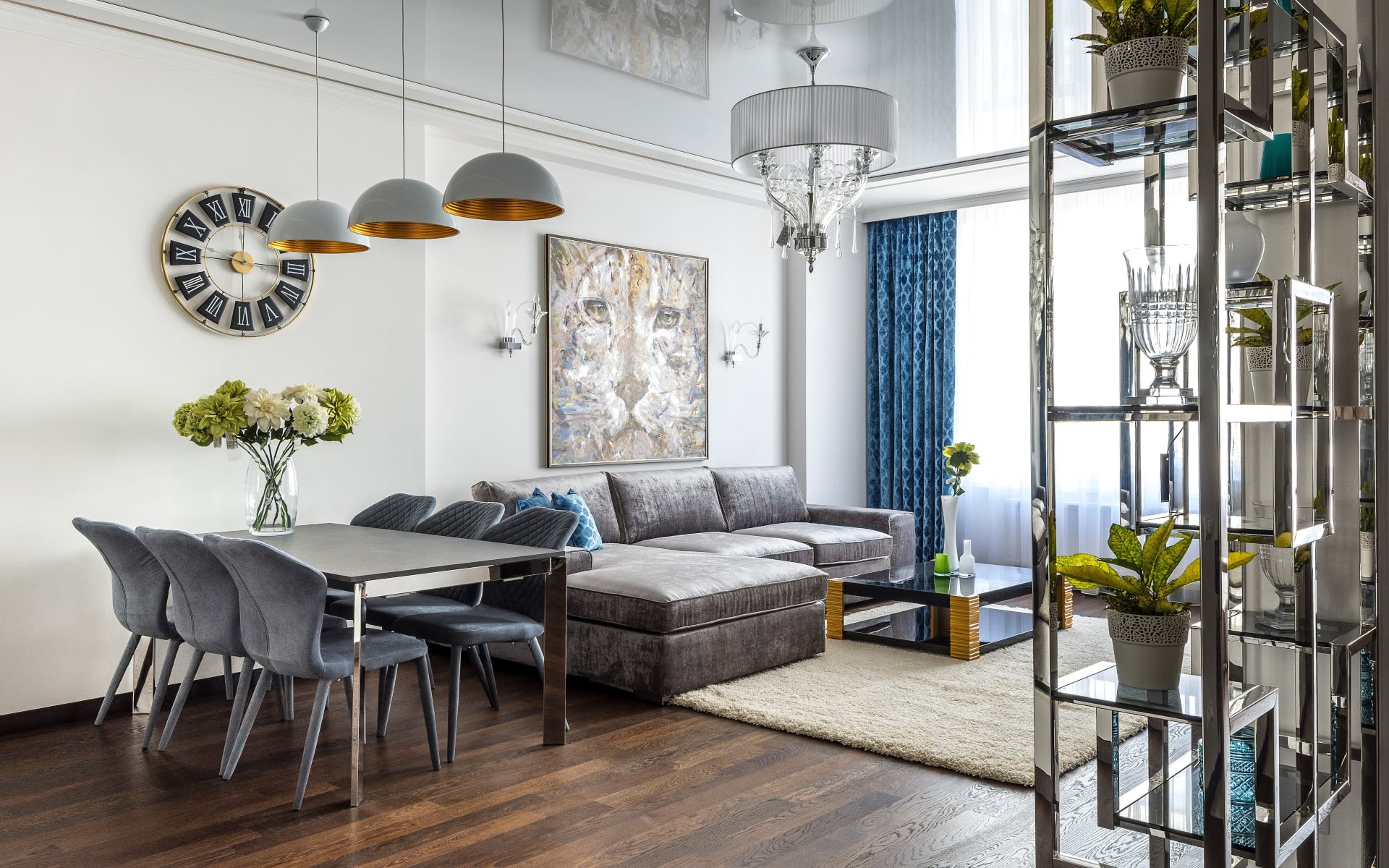Entering the real estate market as a seller is both thrilling and challenging. As you prepare to bid farewell to a place filled with memories, it's imperative to present it in the best possible light to prospective buyers. This is where the subtle art and concrete science of home staging come into play. But before we delve deeper into its intricacies, let's explore what home staging truly entails and why it has become a pivotal aspect of the
home-selling process.
Delving Deeper into Home Staging
Home staging is a blend of design principles and marketing psychology. While it may sound complex, its essence is straightforward: it's about turning your lived-in home into a product that appeals to a broad audience. Think of it as setting up a stage for a play, where each room tells a story and evokes emotions that resonate with potential buyers.
At the heart of this process is the goal to minimize the home's flaws while accentuating its strengths. This doesn't always mean a complete overhaul; often, it's the small touches that transform a space. It could be the placement of a lamp, the choice of throw pillows, or the strategic positioning of furniture. When done right, these seemingly minute details can have a profound impact. They convert an empty or personalized space into a vibrant canvas, where buyers can paint their future lives.
Home staging transcends mere aesthetics; it creates an experience. When potential buyers step into a staged home, they're not just observing; they're immersing themselves in a potential future. It's this emotional connection, this visualization of possibilities—be it a cozy reading nook, a lively family room, or a serene bedroom—that makes home staging a compelling tool in the real estate world.
Why Stage Your Home?
Statistics from the National Association of Realtors provide a compelling answer. A significant 58% of buyers' agents believe that home staging influences how potential buyers perceive a property. In fact, 82% felt that it made it easier for buyers to visualize the property as their own. This is critical in a competitive real estate market where you want your home to stand out.
There are also tangible benefits: homes that are staged before listing, on average, sell for 25% more than those that aren't. Moreover, they spend about 73% less time on the market. Given these numbers, it's easy to understand the growing emphasis on this real estate strategy.
Tips for Successful Staging
- Declutter and Depersonalize: A clutter-free space doesn't just look good; it allows potential buyers to focus on the property itself. Removing excess items, especially personal ones like photographs or niche collections, creates a neutral canvas. Buyers should be able to envision their own life and memories in the house, not feel like they're intruding on someone else's.
- Neutralize Your Palette: Bold colors might showcase your personal style, but they can be jarring to some viewers. Neutral shades offer a soothing, universally appealing backdrop. This doesn’t mean your rooms should lack color, but consider soft hues that provide a harmonious feel, allowing viewers to mentally place their own furniture and decor in the space.
- Use Natural Lighting: Lighting can dramatically impact how a space feels. Natural light makes rooms feel more expansive and vibrant. Remove heavy drapes, ensure windows are sparkling clean, and let the sunshine flood each room, setting a cheerful and welcoming ambiance.
- Rearrange Furniture: Furniture arrangement can affect a room's perceived size and function. Aim for an open feel, where movement isn’t restricted. If certain pieces seem too bulky or numerous, consider storing them temporarily. The goal is to make each room feel spacious yet cozy.
- Highlight Each Room's Purpose: A space’s purpose should be evident at first glance. Convert that empty room into a guest bedroom or a home office. By providing a clear function, you give potential buyers a vision of how versatile and useful the entire home can be.
- Invest in Curb Appeal: The exterior is the first thing buyers see. Whether it’s a freshly mown lawn, blooming flowers, or a newly painted front door, these small touches can have a massive impact on first impressions. Even simple steps like ensuring the pathway is clean can make your home more inviting.
- Deep Clean: Clean homes suggest well-maintained properties. This goes beyond regular cleaning; think freshly cleaned carpets, polished floors, gleaming windows, and grime-free bathrooms. If this sounds daunting, professional cleaning services might be worth the investment, ensuring every corner shines.
With each of these tips, the overarching goal remains the same: present your home in such a way that potential buyers can easily envision it as their own. A well-staged home doesn't just boost aesthetic appeal; it resonates emotionally, making your property hard to forget.
Is Home Staging Right for You?
The simple answer is, for most sellers, yes. While there's an art to home staging, the science (or the statistics) backs its efficacy. Whether you're going the DIY route or hiring professionals, staging your home is an investment that can pay off in both the sale price and speed of the transaction.
Navigating the Choices: DIY Staging vs. Professional Expertise
As a homeowner readying to sell, you're faced with a plethora of decisions. One of the most significant is whether to dive into the world of home staging on your own or to bring in the seasoned expertise of a professional. Both paths have their merits and can lead to a beautifully presented home, but understanding the nuances of each will help you make an informed decision.
The DIY Staging Journey
DIY, or "Do It Yourself," staging is an enticing route for many, particularly for those who have an innate sense of style, an eye for detail, or are on a stricter budget. The digital age has made DIY staging even more accessible, with countless online resources, tutorials, and platforms offering tips and tricks. From color palettes that resonate with buyers to the optimal way to arrange furniture in a living room, the internet is a treasure trove for DIY enthusiasts.
Choosing the DIY path allows homeowners to have complete control over the process, often resulting in a personal touch that can resonate well with potential buyers. Additionally, it provides an opportunity for sellers to declutter, reorganize, and emotionally detach from the home, making the eventual move somewhat easier.
However, DIY staging isn't without its challenges. It requires time, effort, and a certain level of design acumen. There's also the risk of being too emotionally attached, leading to design choices that resonate personally but may not appeal to the broader market.
The Professional Touch
Professional stagers, on the other hand, bring a mix of design expertise and market-aware psychology to the table. Their experience arms them with an understanding of what sells and what doesn't, tailoring their strategies to current trends and the specific demographics of potential buyers. They're adept at creating spaces that are universally appealing and evocative, turning even the most mundane areas into captivating showcases.
Moreover, professionals have resources at their fingertips—like furniture rentals or art pieces—that can dramatically elevate the appeal of a home. They can quickly transform spaces, taking the guesswork out of the equation for sellers.
The primary downside? Cost. Hiring a professional stager can be an investment. However, when balanced against the potential increase in your home's selling price and the speed of the sale, many find it a worthwhile expenditure.
The Role of Your Real Estate Agent
Your
real estate agent can be a pivotal guide in this journey. Not only can they offer insights into the current market and buyer preferences, but they often have connections to trusted staging professionals. Even if you lean towards DIY, your agent can provide feedback, ensuring your efforts align with market demands. Their industry knowledge, combined with their vested interest in selling your home at the best price, positions them as invaluable consultants in the staging process. Always consider tapping into their expertise and resources; it might just make all the difference in your home's presentation and sale.
Work with Penkhus Properties
Penkhus Properties has gained respect and trust since its establishment in 1951. If you're looking to buy or sell a home or have any questions about the Colorado real estate market,
contact Chad Penkhus today.













